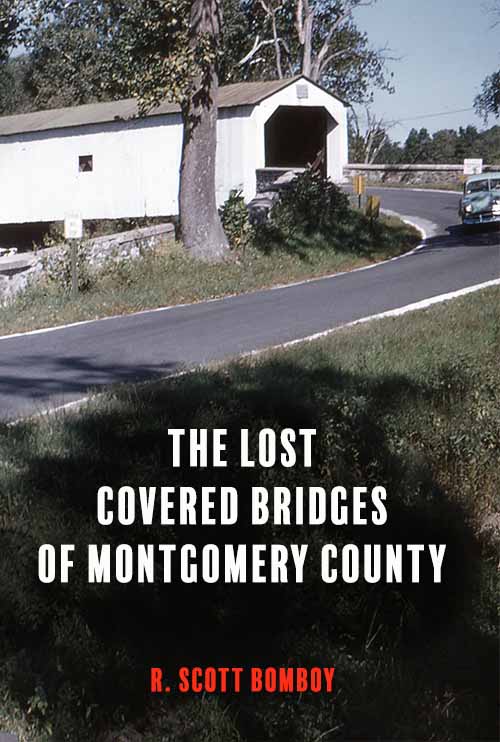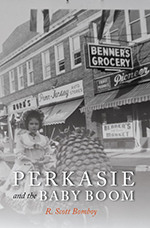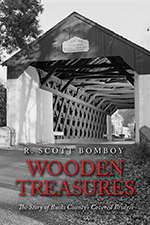I was doing research today at the Mercer Museum’s library and came across an election certificate from November 1947. It was that piece of paper that played a crucial role in two of the most-contentious elections in Perkasie Borough history.
On November 10, 1947, the certificate arrived in Doylestown with the results of a special referendum held on November 4, 1947, on a controversial subject: showing movies on Sunday. Nearly 78 percent of Perkasie registered voters took part in the 1947 referendum, and by a 1,099-558 vote, Perkasie residents rejected an effort to show all Sunday movies, even if they were exhibited after 2 p.m. and even if there were no admission charges at the theater.
The election was a major factor in 1950 after Perkasie’s Plaza Theater caught fire, and its owner, Bernard Haines, asked for the Sunday movie ban to be lifted, or he would move his business to another town.
Pennsylvania passed its first set of “Blue Laws,” which banned business activities on Sundays, back in April 1794. They were mostly observed in Bucks County over the next century, with authorities not aggressively enforcing the laws for train and trolley travel. As the new century started, and activities such as baseball and amusement parks became popular pastimes, the Blue Laws were selectively enforced by local authorities. In 1909, Lansdale’s burgess, Wilmot Harvey, quit rather than enforce the Borough’s Blue Laws. The first efforts to kill the Blue Laws in Harrisburg failed quickly in 1919.
The laws stayed on the books during Prohibition, and Perkasie adopted stricter versions of them in January 1930, when a newly elected Perkasie Borough Council barred any fees on Sunday at the Menlo Park amusement park. A month later, attorney Harry Grim led a protest meeting of 500 people at Menlo Park, opposing Perkasie Borough’s GOP-controlled council.
In January 1934, Democrats led by Harleigh Apple and Roy Benner took over Perkasie Borough Council after running against the Blue Laws for several years, and they quickly overturned the 1930 ordinance against amusements. All six Republican council members from 1930 who voted for the amusement park bans were out of office, with four members losing at the polls. By that time, state lawmakers officially permitted Sunday baseball and football, if local lawmakers chose to enact laws to allow such contests.
However, the line was drawn at a local level about Sunday movies. In 1935, Philadelphia, Reading, Easton, and Scranton passed Sunday-movies laws, but Doylestown, Souderton, and Quakertown voters rejected them by wide margins. The question never came up in Perkasie during 1935.
 But in July 1941, a group of Perkasie residents started a petition drive to get the Sunday movie question on the ballot in November, after a similar effort won in Doylestown in 1940. The petitioners got 300 valid signatures to get the question in front of Perkasie voters. The Perkasie Central News pushed for an end for the Sunday movie ban, as did the Plaza Theater’s owner, Haines, who took out newspaper ads.
But in July 1941, a group of Perkasie residents started a petition drive to get the Sunday movie question on the ballot in November, after a similar effort won in Doylestown in 1940. The petitioners got 300 valid signatures to get the question in front of Perkasie voters. The Perkasie Central News pushed for an end for the Sunday movie ban, as did the Plaza Theater’s owner, Haines, who took out newspaper ads.
However, a well-organized local religious community paid for their own newspaper ads and pastors asked voters from the pulpit to reject Sunday movies. A local citizens group also opposed Sunday movies. With a then-record election turnout, about 72% of Perkasie voters kept the Sunday movie ban in place; the vote was 1,130-451 for the ban. The Democrats kept control of Borough Council, but the GOP took Perkasie’s local school board seats.
Six years later, pro-Sunday movie organizers again gathered enough signatures to get the movies question back on the 1947 fall ballot, with similar efforts launched in Souderton and Quakertown. This time, the election was even more contentions. Plaza Theater owner Bernard Haines again bought local advertising. Perkasie’s First Evangelical Union Church asked parishioners to vote against the measure as their “Christian duty.”
The Perkasie News-Herald questioned the churches’ involvement in politics. “The complete separation of church and state necessarily is drawn with pretty narrow lines, but when the church, directly invokes civil law to enforce its edicts or to restrain its members from violating its teachings, it is definitely stepping over the line.” Perkasie’s churches countered with more anti-Sunday movie advertising in the News-Herald. And again, Sunday movies lost at Perkasie polls, in a 1,099-558 vote.
 By 1949, the Sunday movies ballot issue returned to Sellersville, and this time the pro-movie group won by a two-to-one margin. The Sellersville Improvement Association had promised to fund a new movie theater in town if movies were allowed on Sunday, and it worked with Perkasie’s theater owner, Haines, to renovate a livery stable next to Sellersville’s Washington House hotel. Haines ran both theaters for a brief time until the Plaza Theater was closed in November 1950 after a fire caused $50,000 in damages.
By 1949, the Sunday movies ballot issue returned to Sellersville, and this time the pro-movie group won by a two-to-one margin. The Sellersville Improvement Association had promised to fund a new movie theater in town if movies were allowed on Sunday, and it worked with Perkasie’s theater owner, Haines, to renovate a livery stable next to Sellersville’s Washington House hotel. Haines ran both theaters for a brief time until the Plaza Theater was closed in November 1950 after a fire caused $50,000 in damages.
Haines told Perkasie’s business leaders he only would reopen the Plaza Theater if Perkasie allowed Sunday movies, but the local business community did not attempt another petition drive in 1952. A similar effort was successful in Quakertown. Haines eventually sold the Plaza Theater to the Atlantic & Pacific grocery-store chain, and today the building hosts Perkasie Pizza and Pasta restaurant.
Today, the Sunday Movies fight serves as a reminder that contentious elections are not a modern invention. Pennsylvania’s Supreme Court ruled in 1978 against the Blue Laws as unenforceable. But technically, Perkasie Borough has never allowed the showing of commercial public movies on Sunday, a point that became moot when the Plaza Theater closed in 1950.








